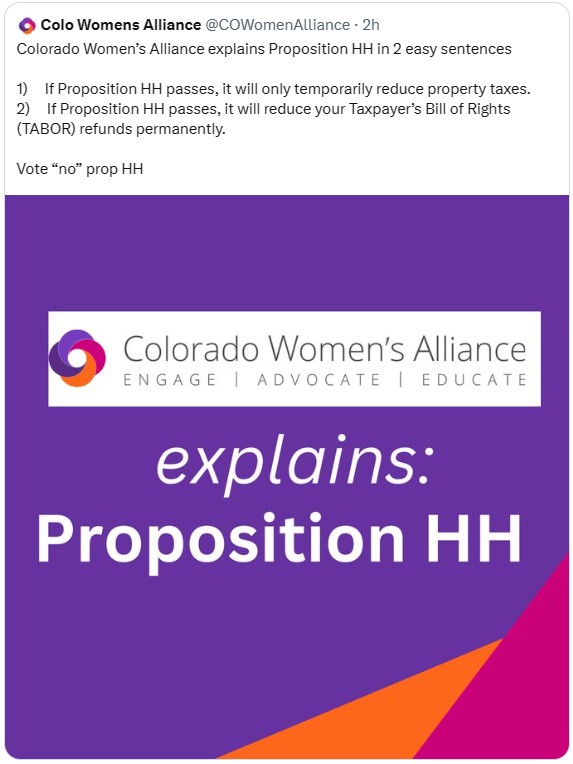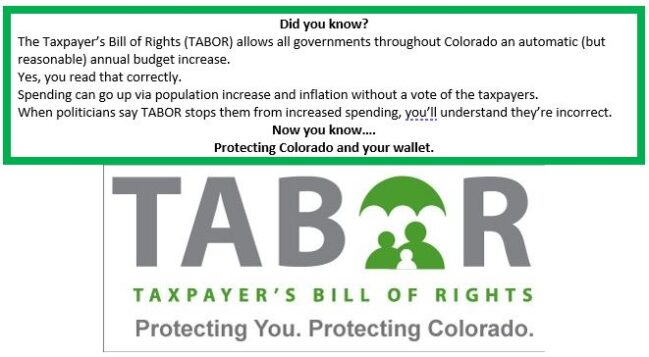August 2023
Dear Voters and Taxpayers:
Proposition HH is NOT what proponents say it is. It is a huge tax increase. It takes your tax refunds already owed back to you but is disguised as a small amount of property tax relief to local governments. It raises State taxes by billions of dollars.
You should be outraged by how it came to get on the ballot. A great thing about the General Assembly is that it allows for views to be shared, citizens to testify in committee, and for important changes to be thoroughly debated. That’s not what happened. The legislation did not go through a proper Committee of Reference, like the Finance Committees in both chambers, as it should have. Also, it was introduced almost at the end of session. Further, reasonable debate was cut off in both chambers so that minority voices were silenced!
Legislators had a duty to follow the right process. Instead, they disrespected the rules and damaged democracy. What they did instead was sneaky and dictatorial. Don’t let them get away with violating your rights! Insist on a new session that conforms to an honest and open process!
PLEASE VOTE “NO” ON PROPOSITION HH this November
Send the legislature back to work for a real solution.
Current legislators:
Rod Bockenfeld HD 56
| Rose Pugliese HD 14 | Scott Bottoms HD 15 | Don Wilson HD 20 |
| Mary Bradfield HD 21 | Ken DeGraaf HD 22 | Brandi Bradley HD39 |
| Anthony Hartsook HD 44 | Lisa Frizell HD 45 | Ty Winter HD 47 |
| Gabe Evans HD 48 | Ron Weinberg HD51 | Matt Soper HD54 |
| Rick Taggart HD 55 | Marc Catlin HD 58 | Stephanie Luck HD 60 |
| Richard Holtorf HD 63 | Ryan Armagost HD 64 | Mike Lynch HD65 |
| Paul Lundeen SD 9 | Byron Pelton SD 1 | Mark Baisley SD 4 |
| Perry Will SD 5 | Janice Rich SD 7 | Larry Liston SD 10 |
| Bob Gardner SD 12 | Kevin Van Winkle SD 30 | Rod Pelton SD 35 |
Past legislators
Penn Pfiffner 1993 – 2000
| Steve Acquafresca 1991 – 1997 | John Andrews 2003 -2005 | Barry Arrington 1997 – 1998 |
| Greg Brophy 2003 – 2014 | Perry Buck 2013 – 2020 | Mark Cloer 2000 – 2006 |
| Phil Covarrubias 2017 – 2018 | Mary Dabman 1983 – 1989 | Doug Dean 1995 – 2002 |
| Frank DeFilippo 1978-1984
Tim Fritz 1999 – 2003 |
Cliff Dodge 1976-1988
Dorothy Gotlieb 1996 – 2000 |
Robert Fairbank 1998 – 2004
Bill Jerke 1989 – 1996 |
| Bob Kirscht 1971 – 1987 | Don Lee 1999 – 2004 | Shawn Mitchell 1999 – 2013 |
| Pam Nagel Rhodes 2000 – 2004 | Lori Saine 2013 -2021 | Mike Salaz 1992 – 1999 |
| Jeff Shoemaker 1987 – 1992 | Ron Teck 1999 – 2006 | Mark Waller 2009 – 2014 |
| Brad Young 1996 – 2004 | Pat Grant 1985 – 1992 | Terri Carver 2015-2023 |
| Patrick Neville 2015-2023 | Lola Spradley 1997-2003 | Vickie Agler 1991 – 1998 |
| Ben Alexander 1995 – 1998 | Kay Alexander 1997-2002 | Don Beezley 2011-2013 |
| Jeanne Faatz 1979-1998 | Sally Hopper 1987-1998 | Eric Prinzler 1995-1998 |
| Andy Pico 2021-2022 | Carol Taylor 1983-1991 |


 Legislative Democrats have been scheming to kill Colorado’s Taxpayer’s Bill of Rights, or TABOR, since before it was added to the state Constitution in 1992. Hardly a year goes by without a bill, proposal, “listening tour,” or lawsuit hatched to enable state legislators to spend money TABOR denies them. Now, they’re at it again.
Legislative Democrats have been scheming to kill Colorado’s Taxpayer’s Bill of Rights, or TABOR, since before it was added to the state Constitution in 1992. Hardly a year goes by without a bill, proposal, “listening tour,” or lawsuit hatched to enable state legislators to spend money TABOR denies them. Now, they’re at it again. In October 2023, Colorado voters are going to get a ballot information guide, nicknamed the Blue Book (it literally has a blue cover page) in the mail prior to the arrival of their actual ballots.
In October 2023, Colorado voters are going to get a ballot information guide, nicknamed the Blue Book (it literally has a blue cover page) in the mail prior to the arrival of their actual ballots.

